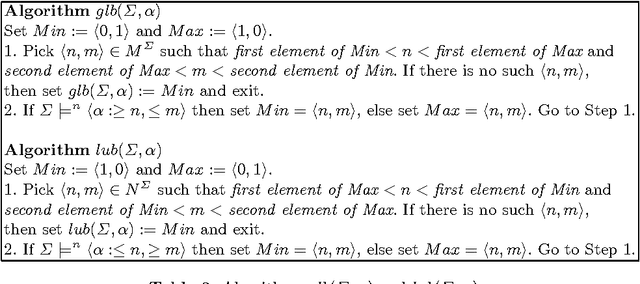A Neutrosophic Description Logic
Paper and Code
Mar 14, 2008

Description Logics (DLs) are appropriate, widely used, logics for managing structured knowledge. They allow reasoning about individuals and concepts, i.e. set of individuals with common properties. Typically, DLs are limited to dealing with crisp, well defined concepts. That is, concepts for which the problem whether an individual is an instance of it is yes/no question. More often than not, the concepts encountered in the real world do not have a precisely defined criteria of membership: we may say that an individual is an instance of a concept only to a certain degree, depending on the individual's properties. The DLs that deal with such fuzzy concepts are called fuzzy DLs. In order to deal with fuzzy, incomplete, indeterminate and inconsistent concepts, we need to extend the fuzzy DLs, combining the neutrosophic logic with a classical DL. In particular, concepts become neutrosophic (here neutrosophic means fuzzy, incomplete, indeterminate, and inconsistent), thus reasoning about neutrosophic concepts is supported. We'll define its syntax, its semantics, and describe its properties.
 Add to Chrome
Add to Chrome Add to Firefox
Add to Firefox Add to Edge
Add to Edge